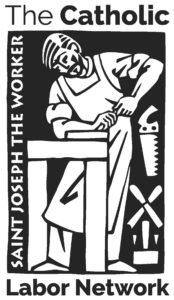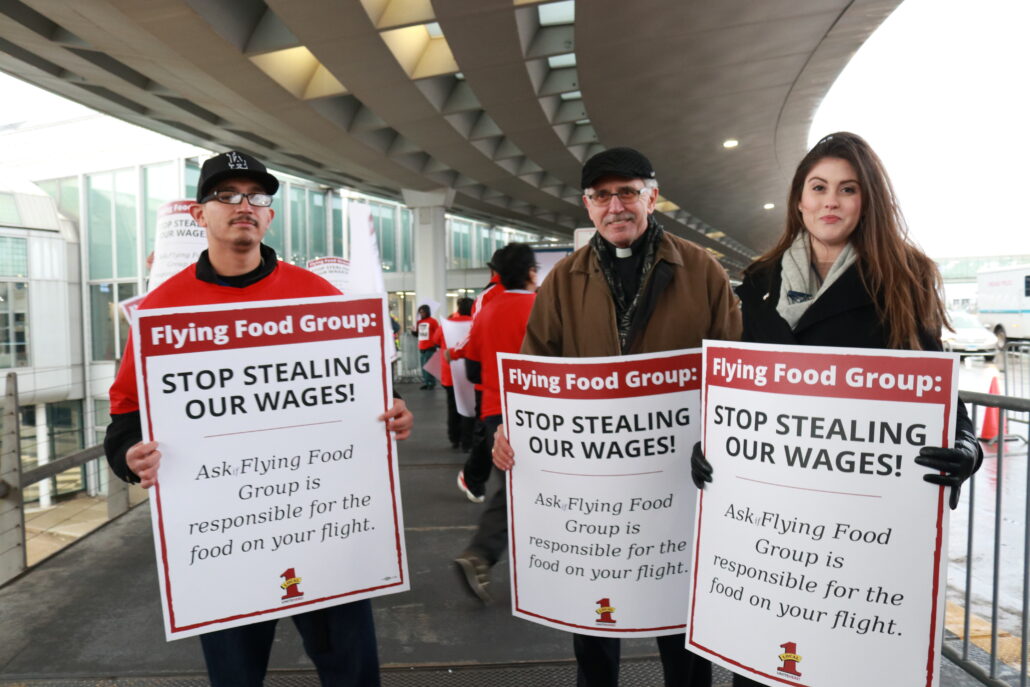The Catholic Labor Network is a place for Catholics — lay, religious and clergy — who find inspiration in Catholic Social Teaching on labor and work.
On this site we come together to exchange information about the Church and social justice and to support working people in their struggles. We promote the cause of workers and Catholic social teaching in our labor unions, parishes and other organizations.
Join Us!
The Catholic Labor Network brings together Church and labor organizations to organize solidarity with workers seeking justice and promote Catholic Social Teaching on labor and work. But we can only do it with your help.
Joy and Hope: Catholic Institutions with Unions
During the year periodically we have to devote our newsletter to Catholic institutions engaged in union-busting behavior out of line with Catholic Social Teaching from Rerum Novarum to today. Happily these employers are not the last word. The Catholic Labor Network has identified more than 600 Catholic institutions that instead demonstrate Catholic Social Teaching by bargaining with unions representing some or most of their employees.
In accordance with our tradition, each Labor Day the CLN offers its Gaudium et Spes report listing these institutions by State and Diocese. New entries this year include Catholic Cemetery workers in Youngstown OH who organized with the Machinists; nurses at Ascension St Agnes in Baltimore MD who joined National Nurses United; and Non-Tenure Track Faculty at two California Catholic Universities, University of San Diego and Loyola Marymount, who joined the SEIU. Most of these workers are still negotiating a first contract so please keep them in your prayers! Unfortunately, the list of unionized Catholic schools has shrunk a bit as organized schools in some urban cores closed.
To find out what’s up in your state, check out the report:


